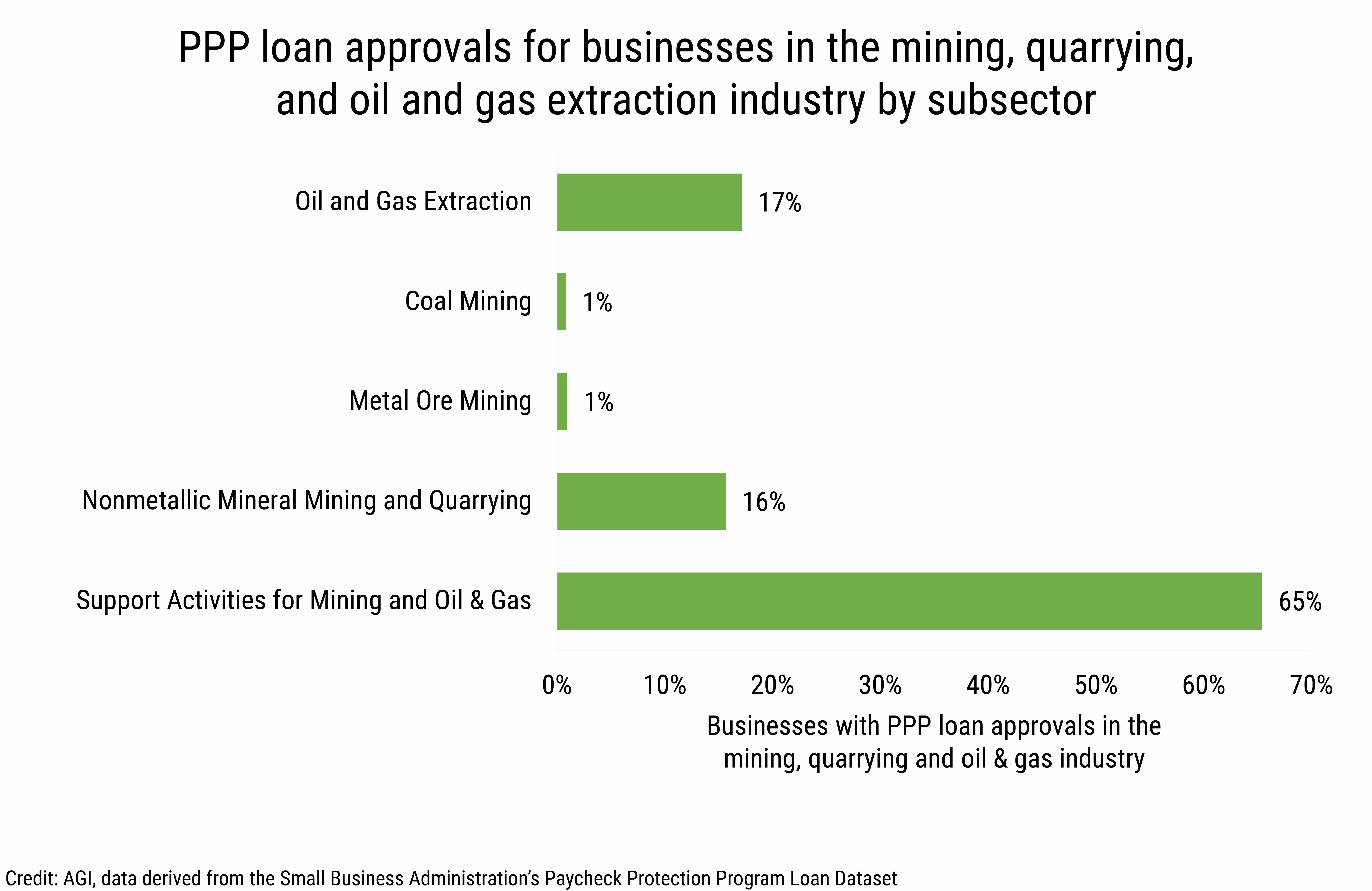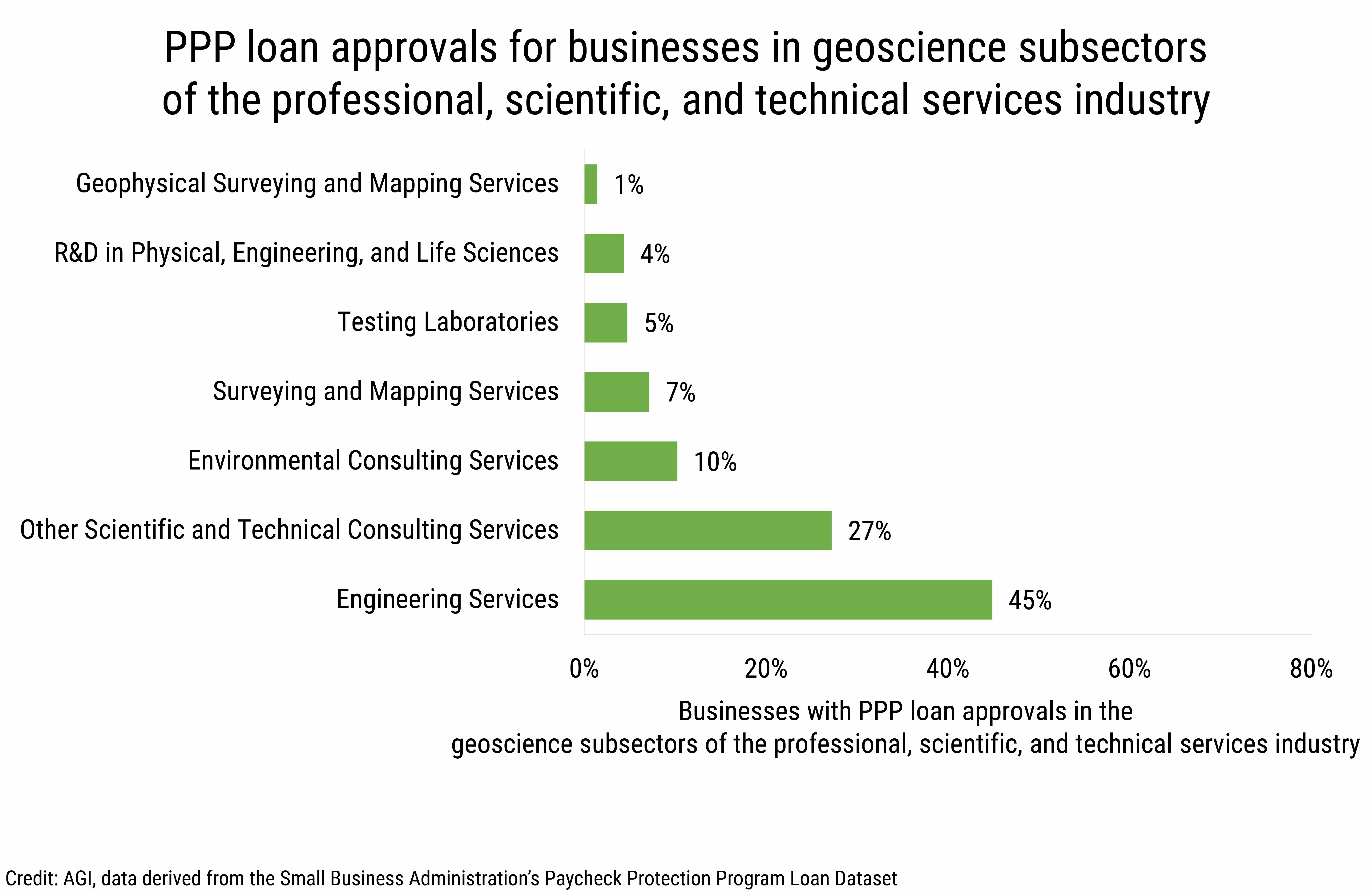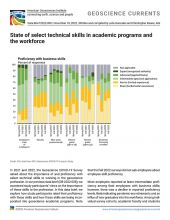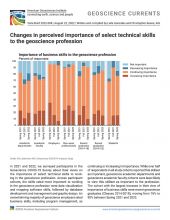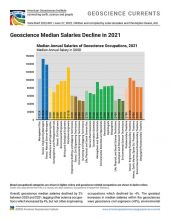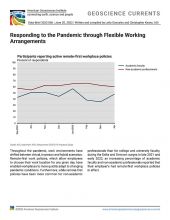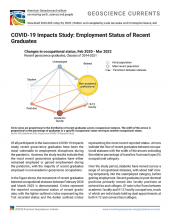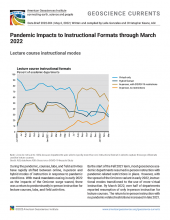The Paycheck Protection Program (PPP) was established to provide small businesses, eligible nonprofit organizations, veterans organizations, tribal businesses, and eligible self-employed or independent contractors with financial assistance to cover business operational expenses such as payroll, rent, utilities, and interest on mortgages.
As of July 2020, 87% of PPP loan approvals for businesses were for loans up to $150,000 and comprised 28% of total PPP funding. Loan approval data indicates that 4.1 million businesses were approved for PPP loans of up to $150,000, and that these businesses were able to retain 19.1 million jobs. The number of jobs retained is a low estimate since approximately 7% of businesses in the loan dataset do not specify the number of jobs retained with the corresponding loan approval data.
As in our previous data brief on PPP loan approvals for over $150,000, we examine two key industry sectors where geoscientists work: the mining, quarrying, and oil and gas extraction industry sector and the professional, scientific, and technical services sector. Businesses in these sectors receiving loan approvals for up to $150,000 show similar trends to businesses receiving loan approvals for over $150,000.
Mining, quarrying, and oil and gas extraction
Within the mining, quarrying, and oil and gas extraction sector, 16,393 businesses received PPP loan approvals for up to $150,000 and the estimated number of jobs retained was 60,460. Of the five primary subsectors within the mining, quarrying, and oil and gas extraction sector, 65% of PPP loan approvals went to businesses in the support activities for mining & oil and gas, primarily to support those businesses involved with oil and gas operations support activities. Sixteen percent of PPP loan approvals within the mining, quarrying, and oil and gas extraction sector went to businesses in the nonmetallic mineral mining and quarrying subsector primarily to support those businesses involved with construction sand and gravel mining. Seventeen percent of PPP loan approvals within the mining, quarrying, and oil and gas extraction sector went to businesses in the oil and gas extraction subsector, primarily to support businesses involved with crude petroleum extraction.
Professional, scientific, and technical services
Within the professional, scientific, and technical services sector, PPP loan approval data for subsectors that are primarily geoscience-oriented can be split from other professional, scientific, and technical service subsectors. Geoscience subsectors accounted for 41,611 businesses with PPP loan approvals of up to $150,000 and 143,658 jobs retained. This equates to 7.5% of businesses with PPP loan approvals and 8.5% of jobs retained within the professional, scientific, and technical services sector. Within the geoscience subsectors, 45% of PPP assistance went to businesses within the engineering services subsector while 27% of PPP assistance went to businesses in the other scientific and technical consulting services subsector.
We will continue to provide current snapshots on the impacts of COVID-19 on the geoscience enterprise throughout the year. For more information, and to participate in the study, please visit: www.americangeosciences.org/workforce/covid19
Funding for this project is provided by the National Science Foundation (Award #2029570). The results and interpretation of the survey are the views of the American Geosciences Institute and not those of the National Science Foundation.


